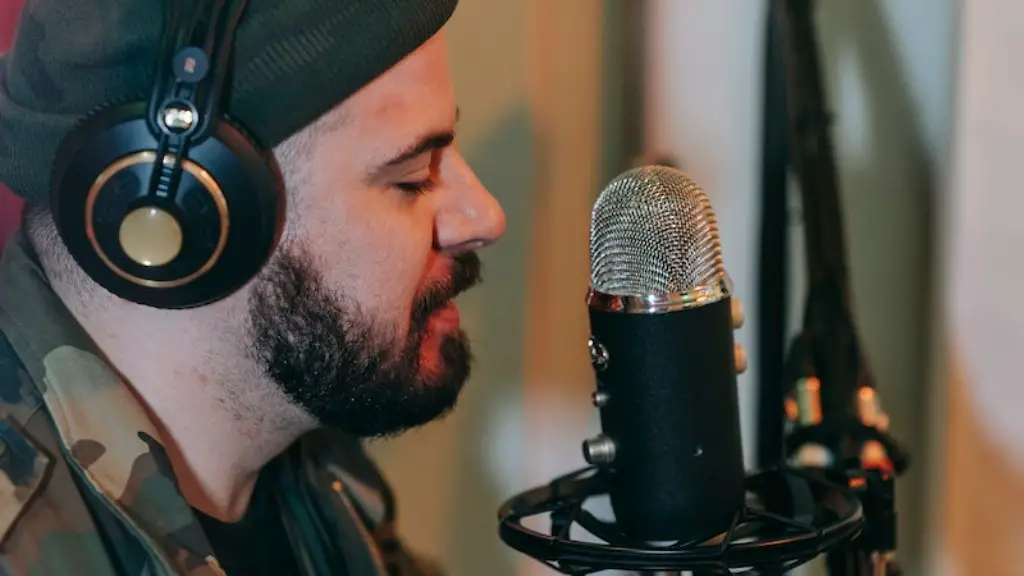The average film score is about sixty pieces of music, which the composer has to write in approximately three months. The deadline is tight, but the reward is great. A good film score can make or break a film, which is why composers are in high demand. If you have a passion for music and film, then composing for film may be the perfect career for you. Here are a few tips on how to get started.
There is no one answer to this question as every composer has their own unique process for creating music for film. However, there are some general tips that may be helpful for those looking to get started in this field. First, it is important to watch the film multiple times and take note of the different scenes and moods that are being conveyed. This will give you a good idea of what kind of music will be appropriate for each scene. Once you have a sense of the overall musical direction you want to take, you can start working on specific cues. It is also important to collaborate closely with the director to make sure that the music is complimenting the visuals in the way that they intend.
How do I get into film composing?
If you’re interested in becoming a film composer, there are a few things you can do to increase your chances of success. First, gain practical and theoretical musical experience. This can be done through taking classes, studying music, and playing instruments. Second, learn about the film industry. This includes understanding the different types of films, the production process, and the music industry. Third, prepare a resume and portfolio. This will showcase your skills and experience to potential employers. Fourth, gain relevant experience. This can be done through working on independent films, student films, or other projects. Finally, persevere through networking. This includes meeting people in the industry, attending events, and sending out your music to potential employers.
Composing music for film can be a very creative and challenging process. You have to be able to produce a lot of music under a tight time schedule. While this can be daunting for some, it can also be a great motivator for your creativity. You can learn to make pressure your friend and use it to your advantage in order to create some great music.
How do composers write music for movies
The invention of digital technology and audio sampling has had a big impact on film scores. Many modern films are able to rely on digital samples to imitate the sound of acoustic instruments, and many scores are created and performed wholly by the composers themselves, by using music composition software, synthesizers, samplers, and MIDI. This has made it possible for composers to create more complex and varied scores than ever before, and has allowed them to experiment with new sounds and textures.
The salary for a Film Composer job in the United States can range from $44,433 to $70,264 per year, depending on the level of experience and education. Click on the filter to check out Film Composer job salaries by hourly, weekly, biweekly, semimonthly, monthly, and yearly.
Is it hard to be a film composer?
If you’re interested in becoming a film composer, you should be aware that it’s a highly competitive field. There are relatively few films made each year, so the pool of potential composers is large. To be successful, you’ll need to have a strong portfolio of work and be able to demonstrate your talent and skill to potential clients.
Composing music is a lot of hard work. You have to be disciplined and have a lot of patience to make it through. But the payoff is great at the end. You will be able to write a lot of music, which is a key ingredient to becoming a better composer.
What is the average age of a film composer?
It’s no secret that the film industry is an ageing one, and this is reflected in the median age of composers working on the top 200-grossing movies. In 1988, the median age was 414 years old but by 2017 it had grown to 54. This trend is likely to continue as the industry fails to attract young talent.
A film’s soundtrack is comprised of three main elements: dialogue, foley, and sound effects. The dialogue is the most important element, as it is the primary way in which the story is conveyed. The foley are sound effects that are designed to be synchronous with the actions of a character on-screen. Sound effects are additional, non-diegetic sounds that help to create a desired mood or atmosphere.
Who is the most difficult composer
There is no definitive answer to this question as it depends on the individual musician’s level of skill and experience. However, the above mentioned pieces of music are generally considered to be some of the most challenging to play.
It is common to categorize music in film as either diegetic or non-diegetic. Diegetic music is defined as music that is heard by the characters within the film and is usually diegetic sound – sound that is part of the diegesis and can be heard by the characters in the film. Non-diegetic music is music that the characters cannot hear and is usually non-diegetic sound – sound that is not part of the diegesis and cannot be heard by the characters.
Source scoring is a term sometimes used to describe diegetic music, but it is more accurately used to describe music that is diegetic but does not come from a diegetic source. For example, if a character turns on the radio in a scene, the music that comes from the radio would be diegetic music, but if the music was score, it would be source scoring.
How do I submit my music to a movie?
If you want to get your music published and licensed, then you should definitely check out Ditto Music Publishing. They will find appropriate opportunities for you and negotiate the terms of the licensing. This way, you can focus on creating great music while they take care of the business side of things.
Placing your catalogue in music libraries is also a great way to get exposure for your music. These platforms get a lot of traffic, so it’s a good way to get your name out there.
Even with buyouts or work-for-hire, composers are often still entitled to the writer’s share of performance royalties, unless their contracts specify otherwise. Composers should make sure to read their contracts carefully to see if they are entitled to performance royalties, and if so, how much they will receive.
How much do Netflix composers make
This is an estimate of the total pay for a Music Composer at Netflix. The actual pay may be different depending on the specific role and responsibilities.
The director is the most important position in a film. They are responsible for the overall creative vision of the project and ensure that all aspects of the production come together to create a cohesive final product. Consequently, directors are usually the highest-paid members of a film’s cast and crew.
Do I need a degree to be a film composer?
No, you don’t need to study film scoring to become a film composer. The majority of A-list composers got to their position in the industry either with just a straight music degree, or no formal training at all.
The film industry is a competitive field, with salaries ranging from $20,000 to $168,500 per year. The majority of film industry salaries fall between $28,000 and $93,000, with the top earners making $160,500 per year. Film industry salaries vary by region, with the highest salaries in the United States.
Are composers in demand
The job outlook for music directors and composers is projected to grow 5 percent from 2021 to 2031. This growth is about as fast as the average for all occupations. Music directors and composers will continue to be in demand as the need for live music increases.
There are many reasons to consider a career in filmmaking. It is a creative and demanding industry that can be very rewarding. It is also one of the top-earning professions in the world, and does not require any formal education. As a filmmaker, you will create visual imagery that brings stories to life. This is a field where you must be enthusiastic about video and television productions.
Final Words
There is no one definitive answer to this question, as everyone has their own unique approach to composing for film. However, there are some general tips that may be helpful in getting started. First, it is important to watch a lot of films and pay attention to the music that is used throughout. This will give you a good sense of the different ways that music can be used in film and how it can enhance the overall experience. Additionally, it is helpful to create a library of different sounds and samples that you can draw from when creating your own pieces. And finally, it is important to be flexible and willing to experiment, as the best compositions often come from unexpected places.
The most important thing to remember when composing for film is to create music that enhances the emotional effect of the scene. The music should never be obtrusive or distracting, but should support the mood of the film. With a bit of practice, anyone can learn to compose music that is both effective and popular with audiences.


